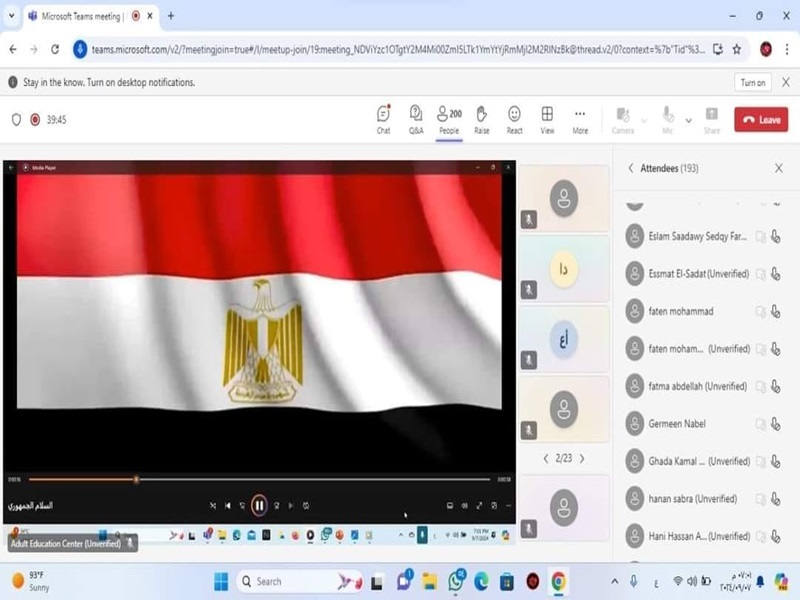The recommendations of the "Adult Education in Emergencies and Crises" Conference at the Adult Education Center at Ain Shams University
The conference on “Adult Education in Emergencies and Crises” organized by the Adult Education Center at Ain Shams University recommended activating the pillars of work of adult education development institutions in the Arab world in terms of participation, coordination, data analysis, and obtaining learning consistent with the needs of building and rebuilding societies, while raising the efficiency of Arab families in terms of mechanisms for dealing with the learning process and preparing alternative emergency plans.
The conference was held under the patronage of Prof. Mohamed Diaa Zain El-Abedeen, President of Ain Shams University, and chaired by Prof. Ghada Farouk, Vice President of the University for Community Service and Environmental Development Affairs, and supervised by Dr. Islam El-Saeed, Director of the Adult Education Center at the University and General Rapporteur of the Conference, on the occasion of International Literacy Day. The events were organized online via Microsoft Teams.
It witnessed a wide-ranging Arab participation with the attendance of nearly (500) participants from 11 countries; Egypt, Saudi Arabia, Kuwait, the Emirates, Bahrain, Lebanon, Iraq, Palestine, Libya, Jordan, and Sudan. The conference included two scientific sessions, in which a number of adult education professors and researchers from Egypt and the Arab world spoke.
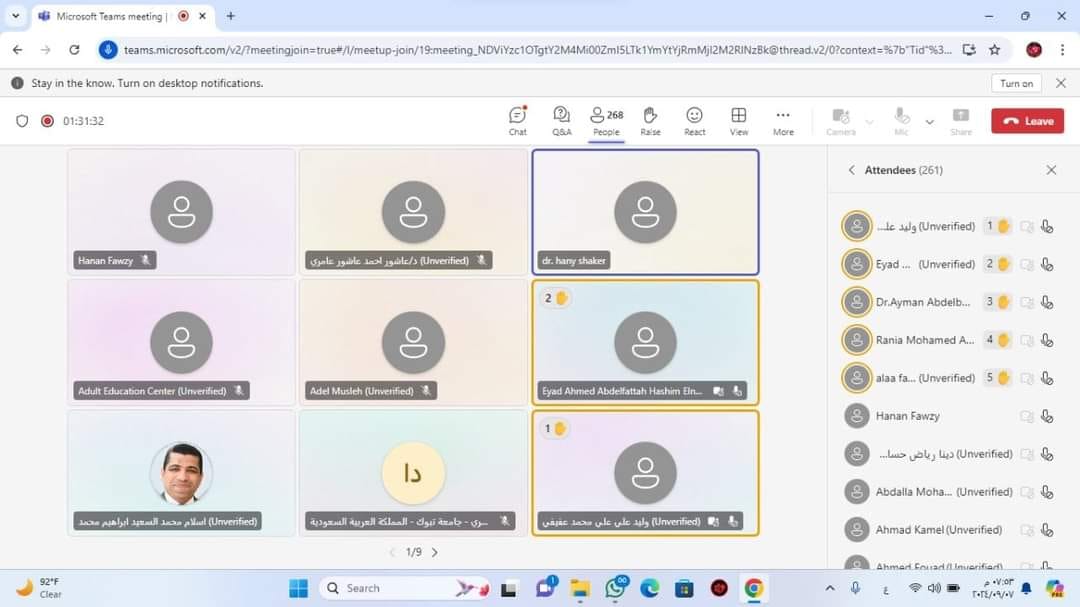 |
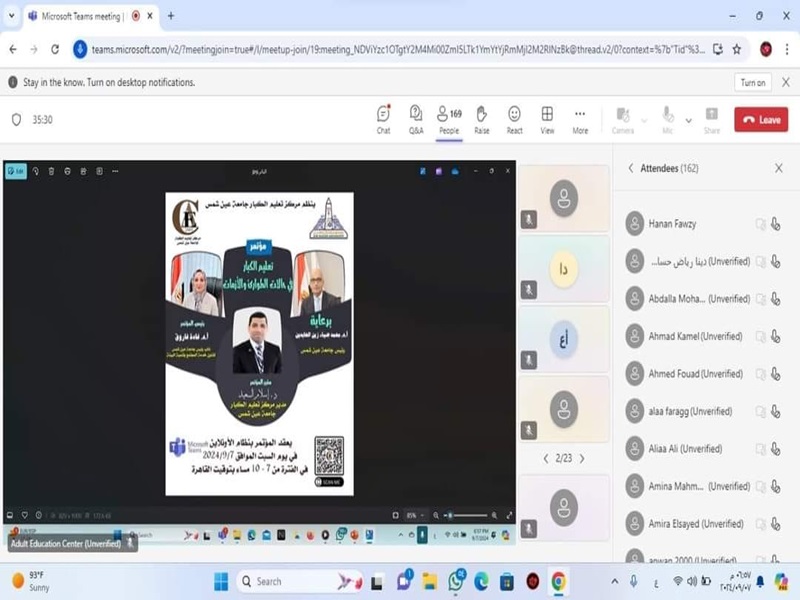 |
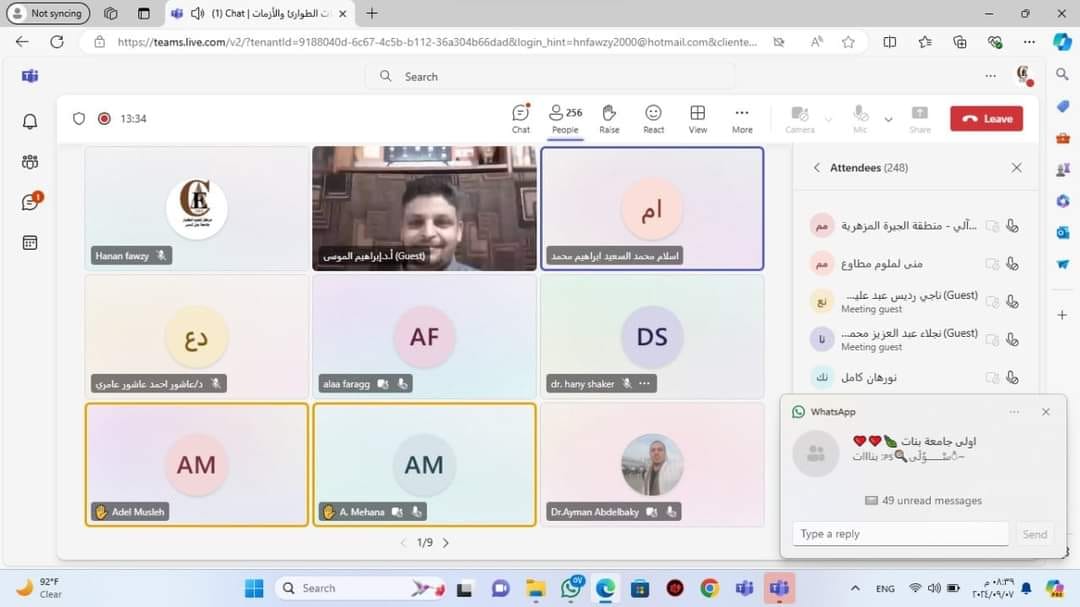 |
||
The conference also came out with a set of important recommendations, including the preparation of Arabic self-learning materials based on basic life concepts and skills, with a proposal to establish an Arab fund to finance education in emergency and crisis situations, with the necessity of establishing a unified national language in education to enhance belonging and identity and reduce marginalization.
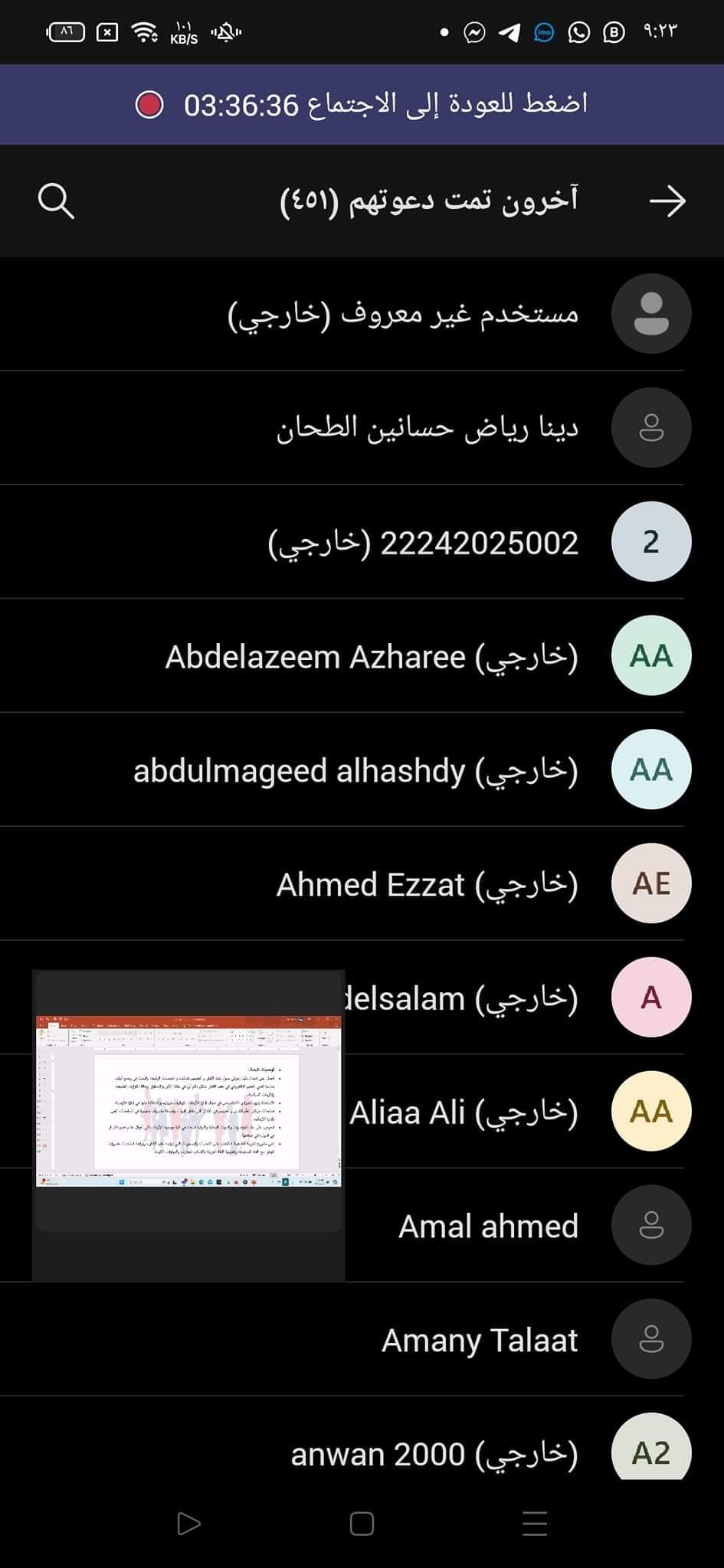 |
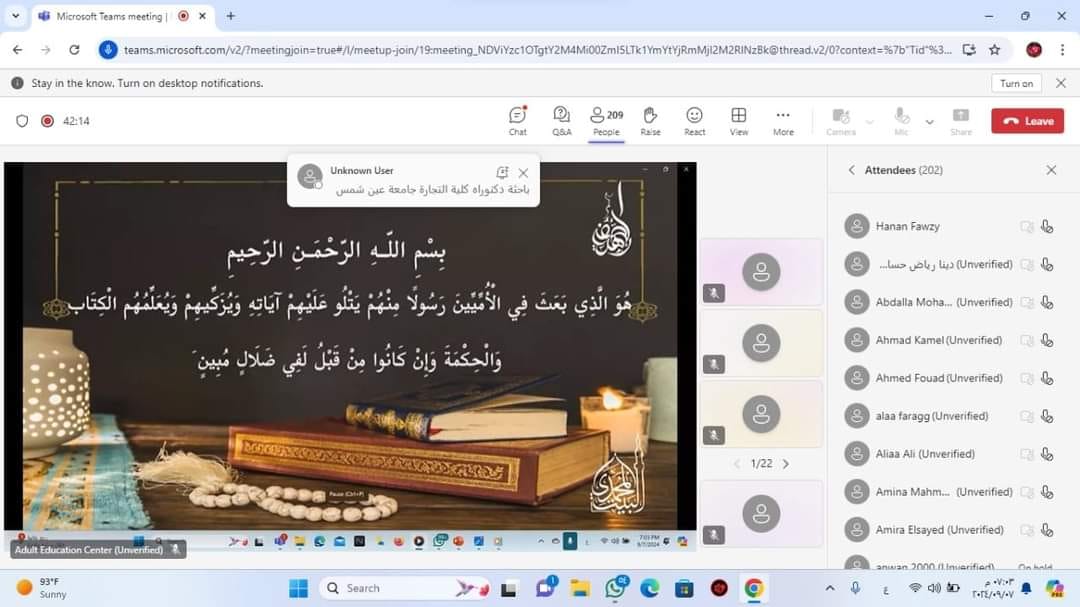 |
Designing qualitative Arab curricula for adult education that are consistent with development standards, enhance the self, restore self-confidence, and consolidate the concepts of social responsibility and volunteer work, building the capacities of adult teachers in light of communication and influence skills, in addition to re-adapting and addressing the effects of psychological and educational crises, employing modern technologies and social media applications in presenting curricula and acquiring basic skills.
The final recommendations also called for the establishment of a faculty for adult education with a department for emergencies and crises, and the establishment of an Arab partnership to launch development and educational projects aimed at qualifying adult teachers in emergencies and crises.


.svg)

